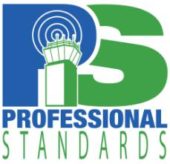 There are different types of divorce mediators. Those with a legal orientation (attorneys and former judges) often approach divorce mediation differently from mediators with other backgrounds. The Academy of Professional Family Mediators (APFM) is the closest there is to a professional body for divorce mediators. The APFM has endorsed a set of family and divorce mediation standards that I agree with and follow. These standards have four basic purposes:
There are different types of divorce mediators. Those with a legal orientation (attorneys and former judges) often approach divorce mediation differently from mediators with other backgrounds. The Academy of Professional Family Mediators (APFM) is the closest there is to a professional body for divorce mediators. The APFM has endorsed a set of family and divorce mediation standards that I agree with and follow. These standards have four basic purposes:
- to serve as a guide for the conduct of family mediators;
- to inform mediating participants as to what they can expect;
- to promote public confidence in mediation as a process for resolving family disputes;
- to maintain the integrity of the mediation process by creating and maintaining boundaries between family mediation and other dispute resolution processes (such as the court system).
You may want to see whether the following divorce mediation standards match what you would like to see in your mediator and mediation experience. If so, when interviewing mediators you may want to ask whether they are members of APFM and whether they follow these standards.
The standards attempt to give a baseline set of expectations. Of course there are many other aspects of divorce mediation sessions.
Divorce Mediation Standards
The standards that address the conduct of a divorce mediation are as follows. A professional family mediator shall:
- be qualified by education and training to undertake the mediation;
- recognize that mediation is based upon the principle of self-determination by the participants;
- facilitate the participants’ understanding of what mediation is and assess their capacity to mediate before the participants reach an agreement to mediate;
- disclose all actual and potential grounds of bias and conflicts of interest reasonably known to the mediator and conduct the mediation process in an impartial manner;
- fully disclose and explain the basis of any compensation, fees and charges to the participants;
- structure the mediation process so that the participants make decisions based on sufficient information and knowledge;
- maintain the confidentiality of all information acquired in the mediation process, unless the mediator is required to reveal the information by law or permitted to reveal the information by agreement of the participants;
- suspend or terminate the mediation process when the mediator reasonably believes that a participant is unable to effectively participate, or for other compelling reason.
Divorce Mediator Standards
The APFM standards which address the training and qualifications of professional family mediators and their conduct outside of mediation sessions are as follows. A professional family mediator shall:
- acquire and maintain professional competence in mediation;
- acquire specialized training and be competent in order to mediate disputes between parents regarding the special needs and circumstances of their children;
- acquire special training to screen, set protocols, and mediate when domestic violence is at issue for either party;
- be truthful in advertising and soliciting for mediation;
- act in a manner that advances the professional practice of family mediation.
Related Posts and Pages:
Choosing a Mediator
Divorce Mediator Approaches
Divorce Mediation Process
Law in Divorce Mediation







